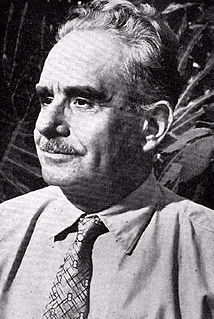A Quote by Pieter Zeeman
Had we really succeeded therefore in altering the period of vibration, which Maxwell, as I have just noted, held to be impossible? Or was there some disturbing circumstances from one or more factors which distorted the result?
Related Quotes
I am afraid that it would be a mockery of justice if the death penalty is not imposed. And therefore I pleaded that there are maximum aggravating circumstances, which supersede the mitigating circumstances. And there is not a single mitigating circumstance which speaks in favor of the accused, and therefore all the accused deserve (the) death penalty.
The perfect life, the perfect lie, I realised after Christmas, is one which prevents you from doing that which you would ideally have done (painted, say, or written unpublishable poetry) but which, in fact, you have no wish to do. People need to feel that they have been thwarted by circumstances from pursuing the life which, had they led it, they would not have wanted; whereas the life they really want is precisely a compound of all those thwarting circumstances.
Upon the whole, therefore, she found, what has been sometimes found before, that an event to which she had looked forward with impatient desire, did not in taking place, bring all the satisfaction she had promised herself. It was consequently necessary to name some other period for the commencement of actual felicity; to have some other point on which her wishes and hopes might be fixed, and by again enjoying the pleasure of anticipation, console herself for the present, and prepare for another disappointment.
Ohm (a distinguished mathematician, be it noted) brought into order a host of puzzling facts connecting electromotive force and electric current in conductors, which all previous electricians had only succeeded in loosely binding together qualitatively under some rather vague statements. Even as late as 20 years ago, "quantity" and "tension" were much used by men who did not fully appreciate Ohm's law.
A conventional valuation which is established as the outcome of the mass psychology of a large number of ignorant individuals is liable to change violently as the result of a sudden fluctuation of opinion due to factors which do not really make much difference to the prospective yield; since there will be no strong roots of conviction to hold it steady.
It is Chairman Mao who should be held primarily responsible for the Great Leap Forward. But it didn't take him long - just a few months - to recognize his mistake, and he did so before the rest of us and proposed corrections. And in 1962, when because of some other factors those corrections had not been fully carried out, he made a self-criticism. But the lessons were not fully drawn, and as a result the "Cultural Revolution" erupted.
Personally, I’ve gotten so that I now use a kind of two-track analysis. First, what are the factors that really govern the interests involved, rationally considered? And second, what are the subconscious influences where the brain at a subconscious level is automatically conclusions in various ways — which, by and large, are useful — but which often malfunction? One approach is rationality… And the other is to evaluate the psychological factors that cause subconscious conclusions — many of which are wrong.
When a man acts in ways that annoy us we wish to think him wicked, and we refuse to face the fact that his annoying behavior is the result of antecedent causes which, if you follow them long enough, will take you beyond the moment of his birth, and therefore to events for which he cannot be held responsible by any stretch of imagination... When a motorcar fails to start, we do not attribute its annoying behavior to sin, we do not say, you are a wicked motorcar, and you shall not have any more gasoline until you go.
R is a velocity of measure, defined as a reasonable speed of travel that is consistent with health, mental well-being, and not being more than, say, five minutes late. It is therefore clearly as almost infinite variable figure according to circumstances, since the first two factors vary not only with speed as an absolute, but also with awareness of the third factor. Unless handled with tranquility, this equation can result in considerable stress, ulcers, and even death.




































